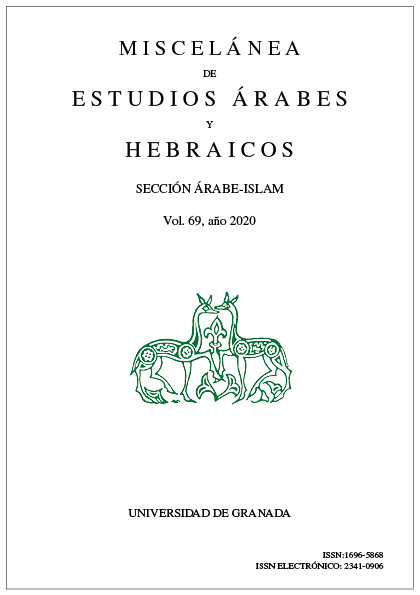GARCÍA ALBERTE, Román. Líbano: El conflicto hecho nación. Madrid: Centro de Estudios Políticos y Constitucionales, 2018, 286 páginas
DOI:
https://doi.org/10.30827/meaharabe.v69i0.1089Abstract
La singularidad del Líbano lo ha llevado a ser objeto de interés de las ciencias políticas por la diversidad confesional que habita dentro de ese pequeño territorio, y, sobre todo, por el modelo institucional conformado en comunidades religiosas diferenciadas —consociacionismo— heredero de su pasado otomano-colonial. Esta singularidad también estriba en que ha sido modelo tanto de éxito y estabilidad (la Suiza de Oriente Medio) como de su contrario: fragilidad y conflictos (guerra civil). También es popular su capacidad sorprendente de reconstrucción, no solamente de sus infraestructuras básicas sino de sus identidades. Unas identidades que resurgen una y otra vez a través de los conflictos. Lo que habla, y de ello trata este libro, de la extraordinaria resistencia del Estado como generador inicial, y el que encauza ulteriormente las resoluciones, de los conflictos libaneses. De hecho, no es un trabajo que se centra meramente en la naturaleza del conflicto o en las causas que lo rigen, sino en el tránsito entre conflicto y estabilidad.
Downloads
Downloads
Published
How to Cite
Issue
Section
License
The authors publishing their work in this journal agree to the following terms and conditions:
1. The authors retain the copyright and give the journal the right to be the first publication of the work and also to be licensee under a Creative Commons Attribution License which allows others to share the work, provided the author of the work and the initial publication in this journal are acknowledged.
2. Authors may make additional agreements separately for the non-exclusive distribution of the version of the work published in the journal (for example, putting it in an institutional repository or publishing it in a book), with acknowledgement of its initial publication in this journal.
3. Authors are allowed and encouraged to electronically disseminate (for example, in institutional repositories or on their own web page) the published version of their works (publisher's post-print version) or, if not possible, the author's reviewed and accepted post-print version. This is to facilitate productive exchanges, and allow for earlier and greater citation by third parties of the published works (See The Effect of Open Access).
4. The journal accepts no responsibility for the opinions expressed by the authors.



















